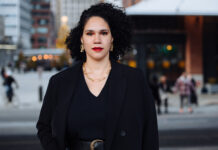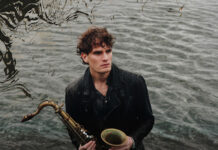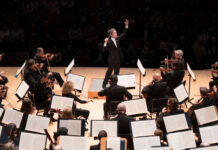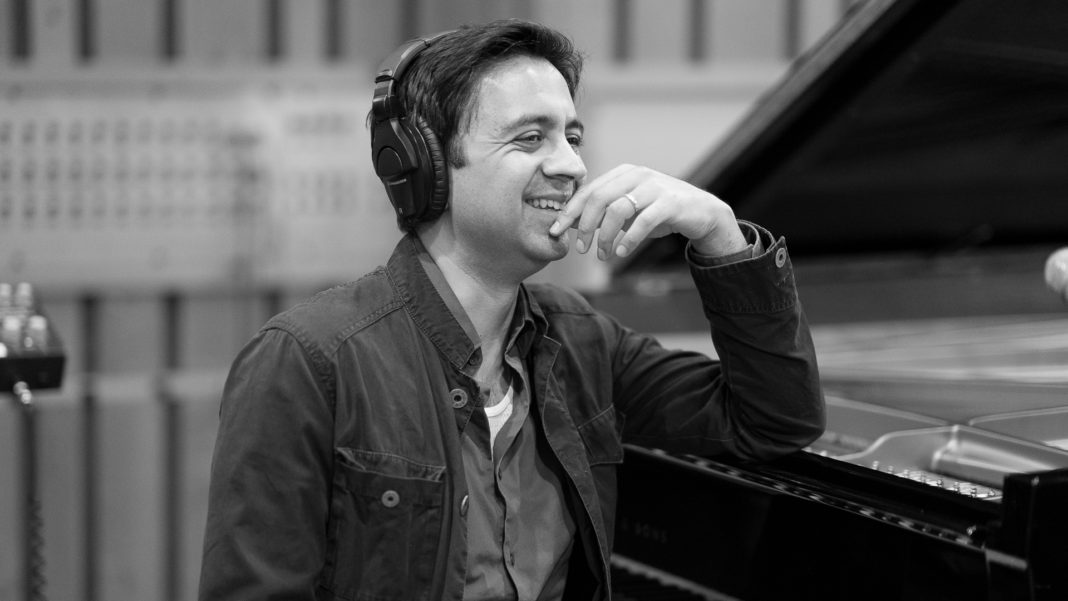It would be difficult to find a more highly-praised jazz pianist and composer than Vijay Iyer. He’s a United States Artists Fellow and a MacArthur Fellow and was named Jazz Artist of the Year by both readers and critics by Jazz Times in 2017. He’s a four-time Artist of the Year from Downbeat Magazine. He works as a soloist, as the leader of a trio, the leader of a sextet, a collaborator with other artists and a teacher. This week he has four shows locally: two solo sets at Mr. Musichead Gallery in Hollywood on Friday and two shows as the Vijay Iyer Trio (with Stephen Crump and Jeremy Dutton) at the Samueli Theatre at the Segerstrom Center in Costa Mesa on Saturday.
Just over a week ago I spoke with Iyer by phone about the versatility of his career, his forays into classical music and how music can change not just an audience, but an artist as well.
You perform in a variety of configurations including a sextet in May at the Soraya. Here you’ll either be solo or part of a trio. What does switching that up allow you to do as an artist?
Playing solo is an on-going space of experimentation and expression and it’s unfiltered for any piano composer. It is what we do. I think a lot of this, for those who are part of this lineage of creative music-making, is we like to challenge ourselves in different formats, instrumentations, the possibility for sound and also just working with different individuals who have their own ideas and sounds they bring to the table. A lot of it is about that conversation and thinking about what we can do together and finding ways to build together and unify and synchronize and ways to express different emotions.
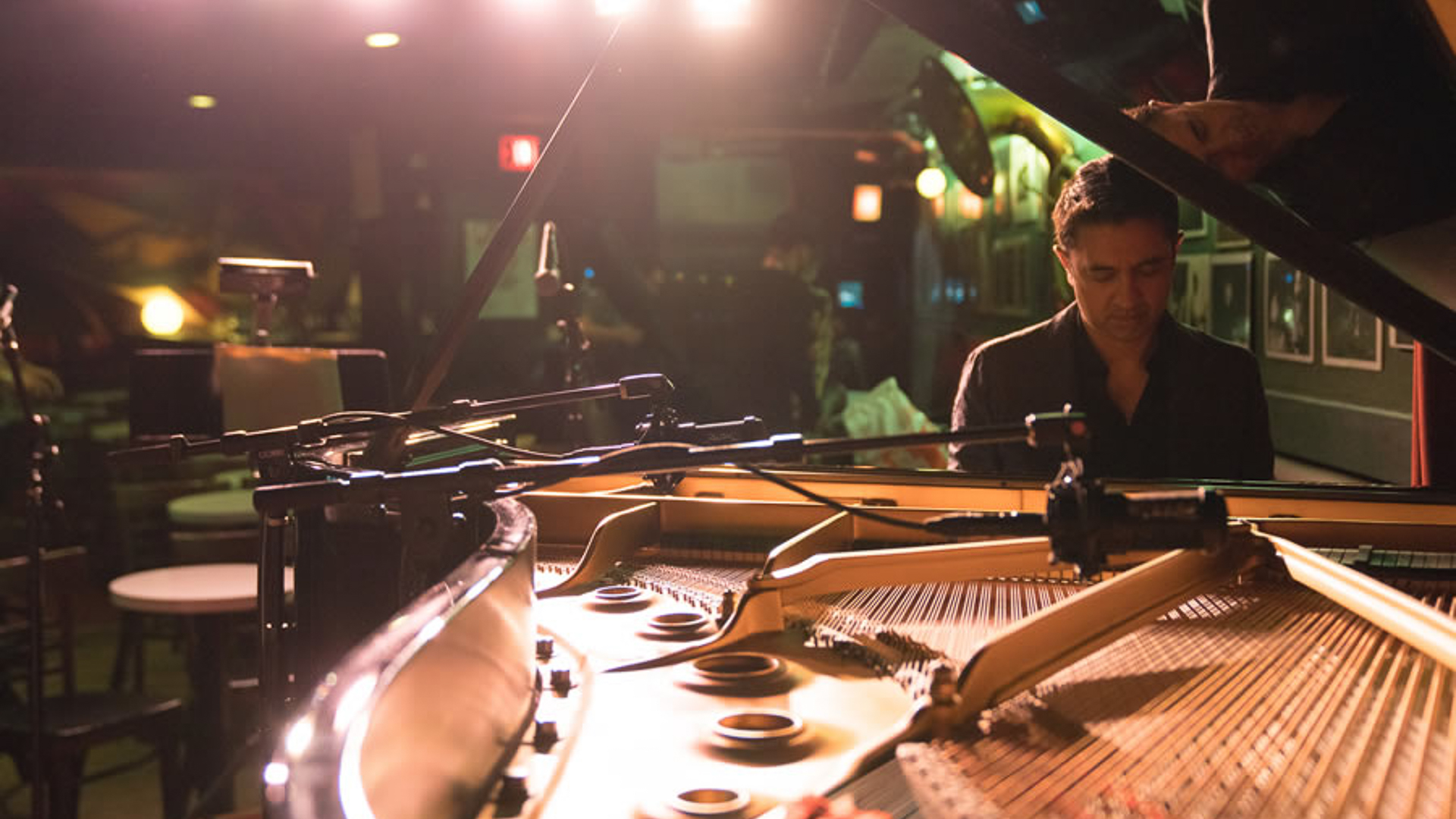
You told NPR in 2017 that the “reason we’re on this planet as individuals is to express and reflect the moment we’re in.” The world seems more chaotic than it was two years ago. How is that changing your relationship to your music and what you want to express with it?
It seems more chaotic, I’m not sure it is honestly. Which is not to say that’s not overstating today, but maybe we were understating it yesterday. I kind of think of American history as chaotic and tumultuous and full of horrific things. When you think of the legacy of music making, particularly traditions of music making and experimental practices of music making that came out of the Afro-American culture and communities, it was often expressing something beautiful in the face of something terrible. That’s kind of the tradition we’re in. It doesn’t feel all that different than it has been considering all of that. When you really think about how this music was born in the face of terror and oppression, yet it was still somehow majestic and transcendent and alive. That’s kind of how I stabilize myself in all of this.
In January the Los Angeles Philharmonic gave the world premiere of your work Crisis Modes. Later this season pianist Brad Mehldau is having the US premiere of his piano concerto with the LA Phil. What is the shift in our culture that makes it possible for these works to be commissioned and performed?
Maybe the question is what is it about the classical world that makes them want to enlist people who are ostensibly outside that world – which is a fiction to begin with. To have this notion of outside and inside. Why did they call [the program at the LA Philharmonic where Crisis Modes had its debut] The Edge of Jazz? My answer is because it would sell tickets. In terms of musicians writing for different formats and ensembles, there’s nothing new about it. It’s just that these networks are starting, maybe, to pay more attention to each other.
You have to see it as these different systems or networks or businesses because it’s not really talent. When you use a name like classical or jazz, it’s not telling you anything about the music. Those labels convey no information about the content or aesthetics. It says more “this is for these people.” Genre names are business terms and categories. They refer to specific channels of funding and networks of power and they don’t refer to artists.
When I interviewed you in 2014 you told me that the most rewarding thing about creating music is that “it can illicit some kind of change in all of us.” How has your music changed you over those five years?
Well it is change. When you create something, when you bring something new into the world, then you are part of that change. You are someone new. You are made new through that process. I guess the idea for me is to keep pushing myself into new challenges where I have to rise to it and grow and become something new and hear something new. That’s the idea. It’s not just for its own sake and entertainment value. It’s kind of, I think, I experience it almost like a spiritual practice. It’s a way of being constructive with the energy around you and moving forward into it rather than being passive and destructive.
For tickets at Mr. Musichead Gallery go here.
For tickets for the shows at Samueli Theatre go here.
Main photo by Lynne Harty. All images courtesy of Vijay-Iyer.com


